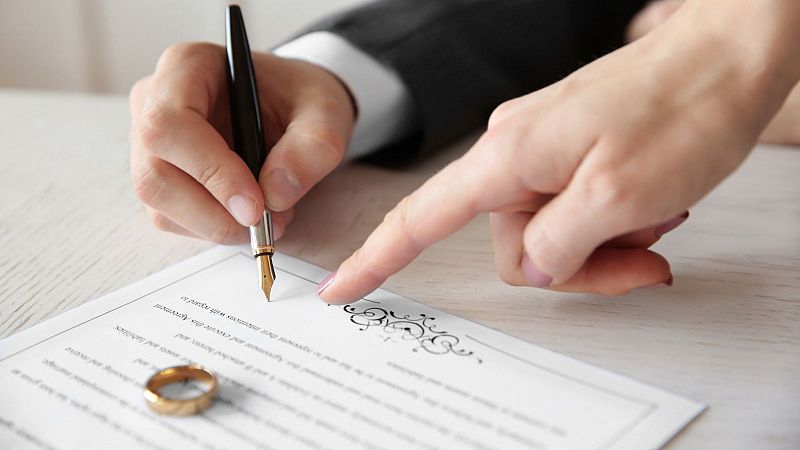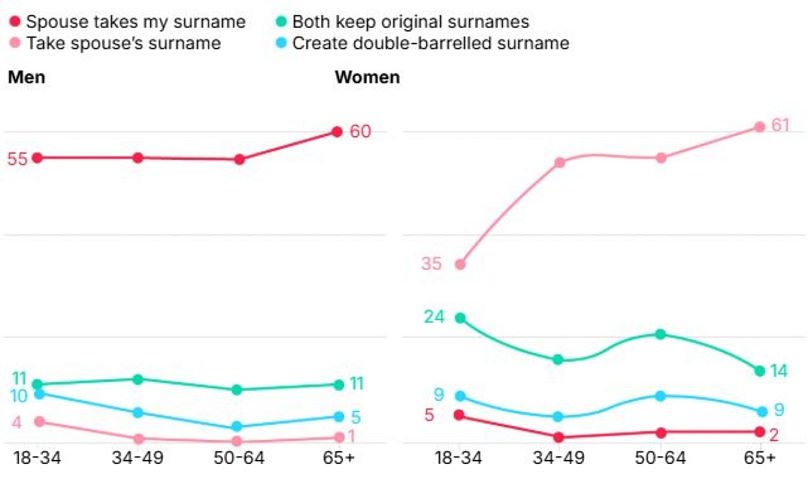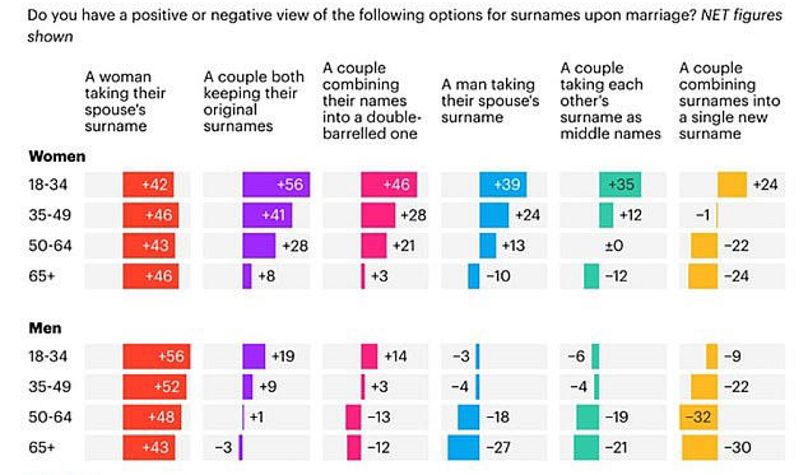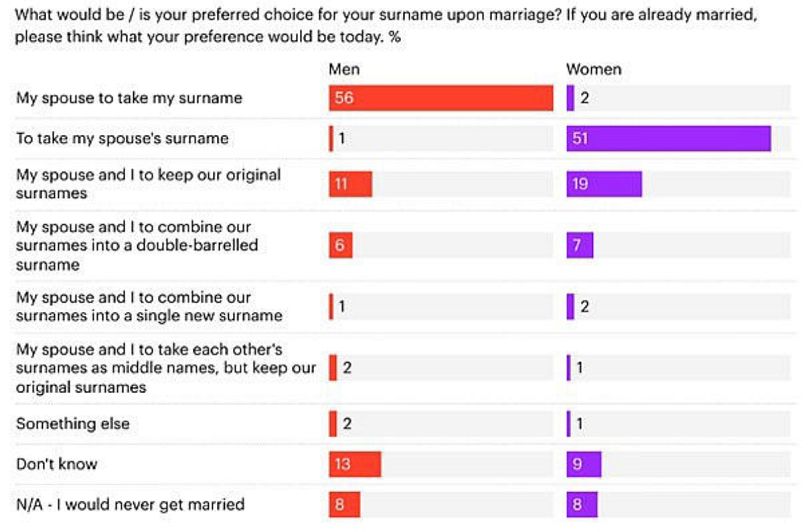
Taking your husband’s surname – a unifying gesture of love or an outdated patriarchal symbol of control?
According to a new study by YouGov UK, which polled 2,192 British adults, it may be perceived as the latter, as figures have revealed that the practice is falling out of favour with millennial and Gen Z women.
Instead, more and more women are chosing to keep their last name or electing the alternative option of creating a double-barrelled surname.
In the UK, just 35 per cent of women aged between 18 and 34 said that they would adhere to the tradition, while 24 per cent of young women said they would rather both partners kept their original surnames - more than double the amount of men of a similar age.

The poll goes on to reveal that 17 per cent of men and 20 per cent of women aged 18 to 34 in favour of double-barrelled surnames or a man taking their spouse’s surname.
However, name blending - couples combining their surnames into a single new name - is the most disliked option by Britons.

While a woman taking her spouse’s surname still remains the majority choice across all age groups - a tradition preferred by 56 per cent of men and 51 per cent of women - almost a third of men aged 18 to 34 ‘feel positively’ about a man taking their spouse’s surname.

The research reinforces a known and expected divide between generations when it comes to traditions, but does reveal that younger women are the most receptive to alternatives.
The custom of a woman changing her surname for her husband’s developed in tandem with the law of coverture – which is defined as the legal status of a married woman, considered to be under her husband's protection and authority.
Under coverture, a husband and wife became “one” under marriage – which may sound very romantic but in fact dictated that the woman didn’t exist in law and that her assets became her husband’s when they wed.
Therefore, the naming custom historically refers to a man having control over his wife’s possessions and negating a woman's existence as an independent person.
The tradition is still considered the norm for the majority of heterosexual couples in many European countries - although it is worth noting that women in Spain and Iceland tend to keep their birth names when they marry, while Greece has made it a legal requirement for wives to retain their names for life since 1983.
While the antiquated and entrenched patriarchal standard clashes with gender equality and vital feminist values, studies continue to show that many women still see the naming tradition as a symbolically joyful one.
A recent American study on the matter found that the majority of women still opt to take their husband’s last name, with around 80 per cent of women surveyed in 2023 opting to take their husband’s last name – compared to 14 per cent keeping their last name and 5 per cent chosing the double-barrelled option.







